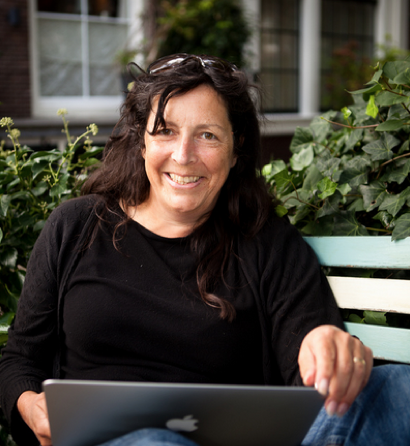There is more to international education than a school uniform
 International schools may make Robin Pascoe a little nostalgic about school uniforms, but she wishes ordinary Dutch schools would do more to embrace their expat pupils.
International schools may make Robin Pascoe a little nostalgic about school uniforms, but she wishes ordinary Dutch schools would do more to embrace their expat pupils.
As a product of the British school system, I wore a shirt, tie and blazer to school every day for goodness knows how many years. The only change came when there was a girls’ revolution and we were finally allowed to wear trousers. But apart from that, it was do I have a clean shirt, is it ironed and will my new skirt from Chelsea Girl get past the prefects? When I finally left school, the first thing I did was set fire to my tie outside the gates. I can remember the sheer delight to this day.
So it is with some surprise that I find myself looking at groups of international school pupils in their uniforms with more than a hint of nostalgia. There is something sweet and old-fashioned about them, from the tinies in their matching sweatshirts to the serious seniors standing around on street corners with a sneaky cigarette.
International schools were never an option in our household. Uniform issues aside, they were just too darn expensive – and they remain so for most, unless you are on some mega salary or your employer is footing the bill.
Earlier this year, the Dutch government said it was setting up an investigation into the international school market in the Netherlands because it had received reports that the shortage of places risked damaging the country’s reputation as a great place to do business.
International
While there is a well-documented shortage of places at some international schools, a survey in Amsterdam last year showed that what most parents really want is help in getting their children into a Dutch school. International schools provide a great and a privileged education for the children of real expats – those who may find themselves moving to Singapore or Geneva in a few years – but they simply are not an option for the majority of internationals in the Netherlands.
It will be interesting to see what the investigation comes up with. A focus on international schools alone would again indicate that the government is fixated on some outmoded concept of the ‘expat’, with massive allowances and relocation packages. We shall see. In the meantime, where does the ordinary international stand in all this?
They have to make do with the Dutch system – and no harm in that. Dutch schools are good, standards are high and, well, there is no school uniform to worry about.
The government has also been making some efforts to encourage more schools to set up bilingual streams and to begin with English lessons at primary school – although they seem to be backtracking on that a little.
New language
But all that is being done from the perspective of the Dutch child. From the perspective of the international household – according to the Amsterdam survey at least – what is needed is more of an effort to integrate foreign-born children into the ordinary Dutch system. We don’t all want to be elsewhere and most of us want our kids to become part of the local culture – however nostalgic we may be for maroon sweatshirts and grey skirts.
If you come from abroad, Dutch schools do involve culture shock. My offspring went to school a long time ago, so things may well have changed since then. After-school clubs seem to have solved the problem of what to do on a Wednesday or Friday afternoon when there was no school to keep James and Anna occupied but you had to be at work.
But parents are still expected to show up to teach kids to read, check their heads for nits (even queen Máxima was a nit mother), have an endless supply of cardboard and paint to make things, to take part in school trips, make cakes for sports days, provide something delicious (and nutritionally sound) for every child on your own’s birthday: the list was, and still is, endless.
Failures
Of course, as soon as you’ve got used to it, it all stops when your offspring head off to secondary school, in their uniform of slouchy jeans and tatty trainers. Then new troubles begin – particularly if they are bilingual in Dutch and English.
I’ve yet to come across a bilingual child at a Dutch secondary school who did not fail at least one English exam because they didn’t get the translations right or came home swearing because they had been told to write a review of some book they read when they were eight.
I’m not suggesting that the Dutch educational system needs to be overhauled to fit the needs of the expat child. But the government should wake up to the fact that tens of thousands of expat children go to their local Dutch school and that is what their parents want them to do. More understanding and management of the specific needs and expectations of both children and their parents, particularly if both parents are foreign, would be a great step forward.
Robin Pascoe is the editor of DutchNews.nl. A longer version of this column was first published in the Xpat Journal.
Thank you for donating to DutchNews.nl.
We could not provide the Dutch News service, and keep it free of charge, without the generous support of our readers. Your donations allow us to report on issues you tell us matter, and provide you with a summary of the most important Dutch news each day.
Make a donation